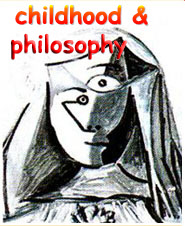on knives, infantia, and the inhuman: a lyotardian reading of incendies
DOI:
https://doi.org/10.12957/childphilo.2016.23520Keywords:
infantia, J.-F. Lyotard, inhumanAbstract
This text is an attempt to offer a reading of Incendies, a 2010 Canadian film written and directed by Denis Villeneuve, adapted from Wajdi Mouawad's play of the same name in the light of Lyotard’s notion of infantia. From this perspective, we can make a distinction between childhood as a temporal human stage, and infantia as an atemporal human condition: infantia may be described as the difference between what can and can not be said--the unsayable, something lost that inhabits, imperceptibly, the speakable as its shadow, its reminder, an unspoken that works as a condition of possibility in order that something meaningful could be said. As such it is a form of the inhuman, opposed to the other form of the inhuman, called "development,” “competition," "representative democracy," "the market," "free world," or simply “capitalism.” Lyotard affirms that the political task of literature and art is to remember the former inhuman, the one that each human soul carries by the fact of having been born from a forced need to abandon its condition of indeterminacy. “Political,” for Lyotard, is the resistance to the inhumanity of the capitalist order by means of remembering the inhuman from which every order emerges. This is the aesthetic and political strength of Incendies: to present to us, through its heroine, “the woman who sings,” an appeal to remember the silenced inhuman from which we come, and which our social life has made us forget.



